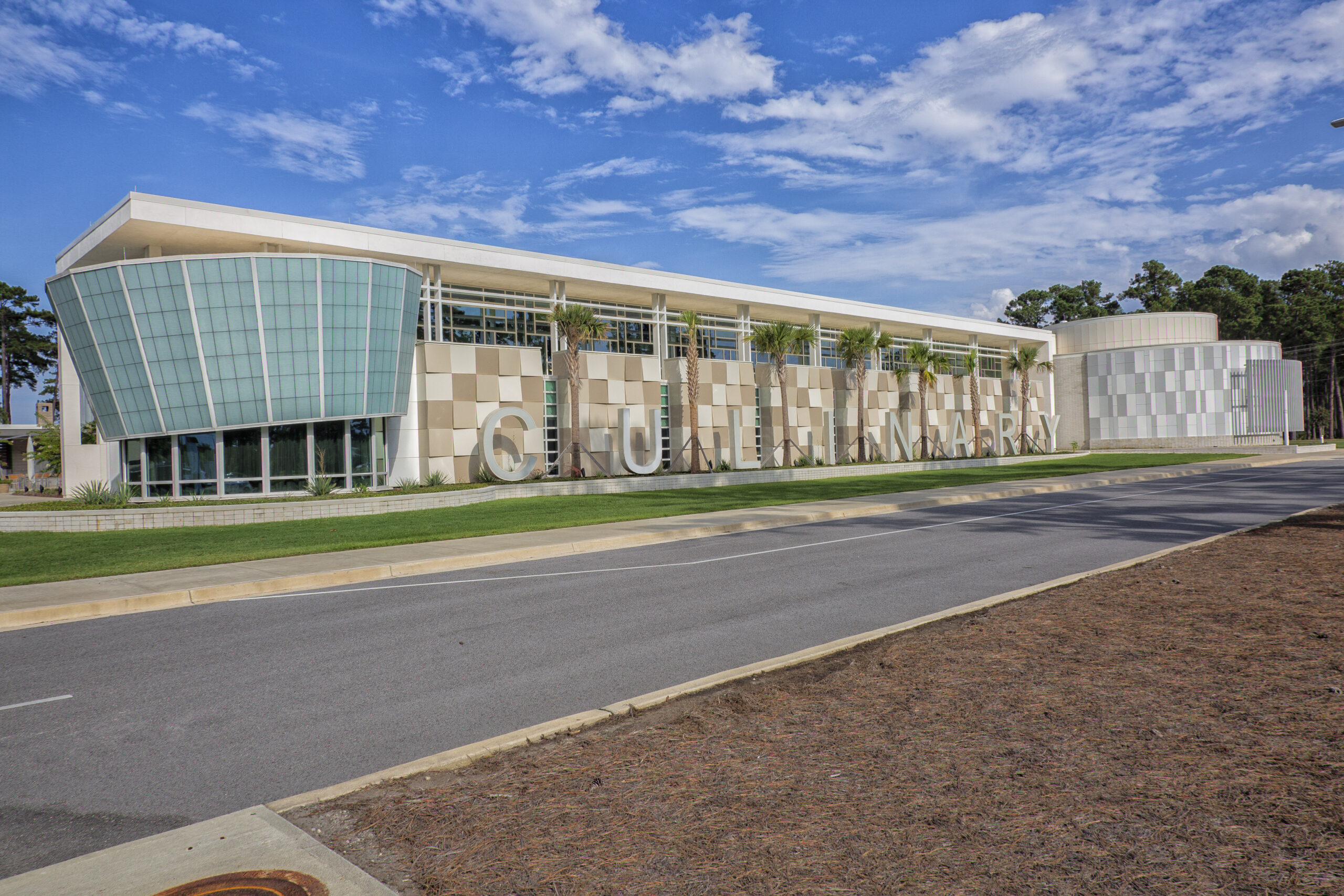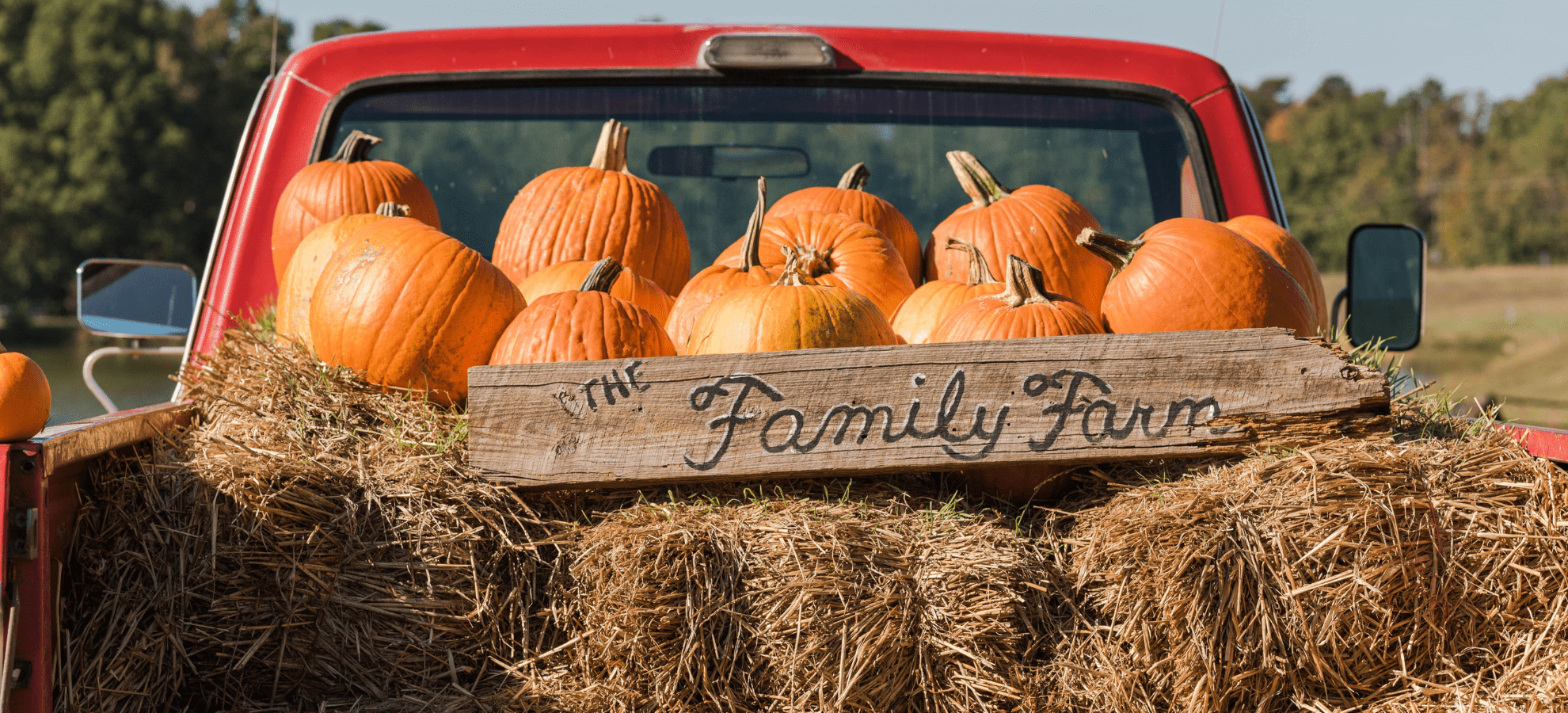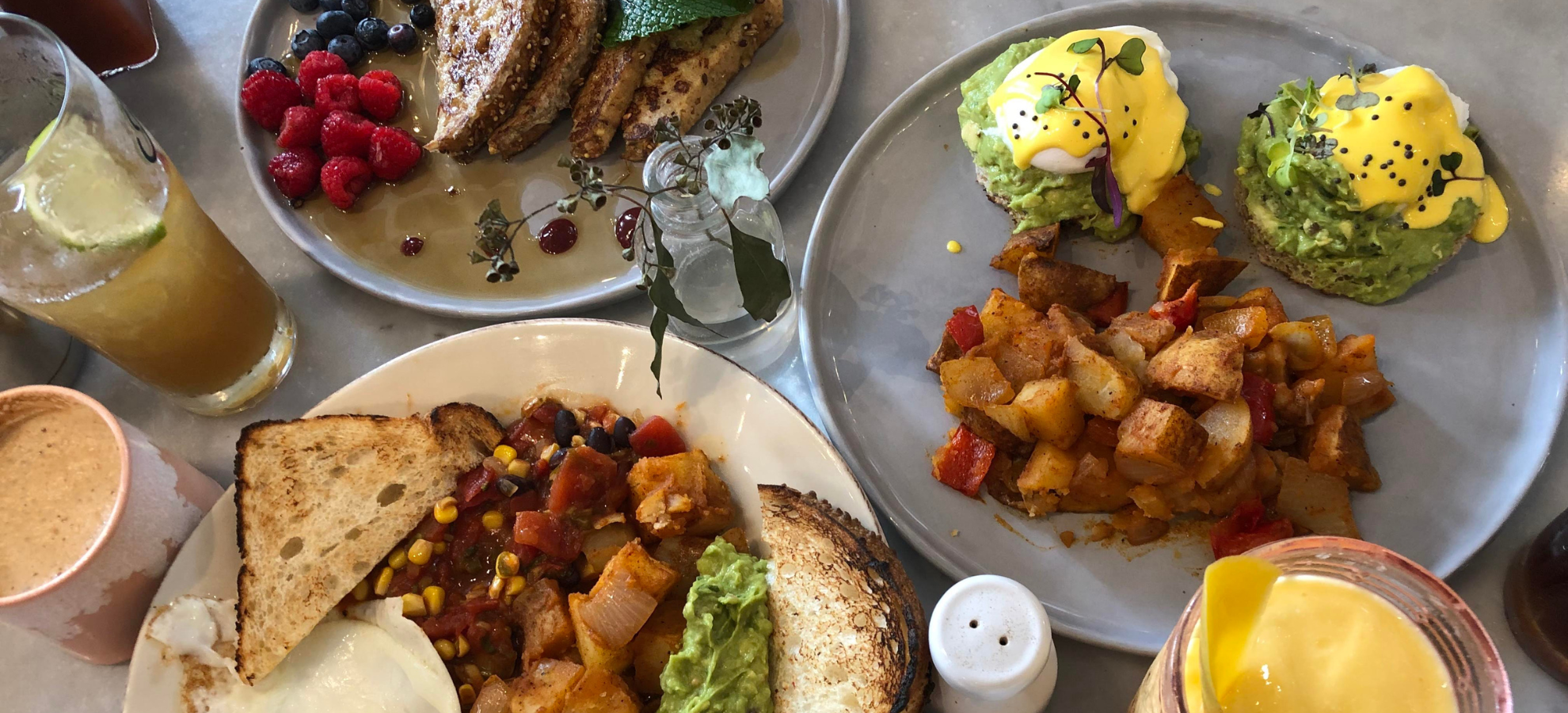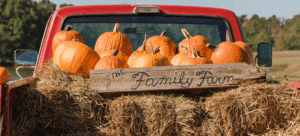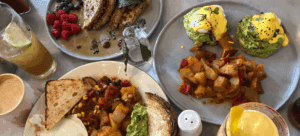Catching Up with Chef Joe Bonaparte
by Melissa LaScaleia
This month, the Insider took a look at what is cooking and in the works for Chef Joe Bonaparte, executive director of the International Culinary Institute of Myrtle Beach in the Market Common, and a trailblazer in the arenas of sustainability and food production from farm to table.
“We have a lot of things going on that we’re excited about,” says Joe. “Last August, we started a full-scale recycling program that includes plastic, cardboard, and glass. We also have hundreds of pounds of compost that we’ve been sending to a compost facility each week that we’re about to get back for our gardens. From implementing these two things, our waste has been reduced by 70%, which is drastic and a major accomplishment.”
Joe is currently working with the James Beard Foundation which has developed a curriculum to reduce food waste by teaching students techniques to utilize the entirety of a food. It involves things like crisping fish skin, doing something with the fish head, such as cooking the collar or cheek, using pits and peels; some are as simple as making sausage from pork trimmings. Steven Satterfield, the well known author of Root to Leaf, is one of the program’s major contributors.
“There are a lot of things that get trimmed and thrown away, and if you know food, ingredients, and cooking techniques, you know how to use those things,” Joe says. “It’s another facet of creative cooking that we’re embedding in the curriculum for students; it can be incorporated into current culinary school classes with ease; and it reduces a significant amount of what gets sent to the landfill.
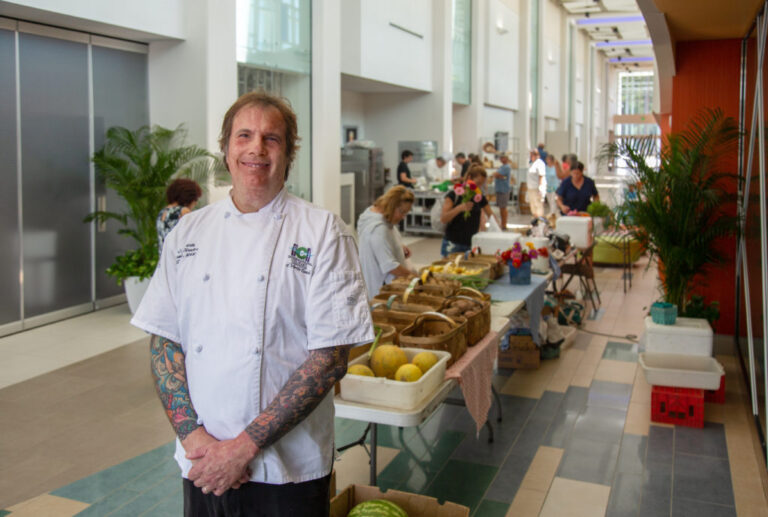
“Sustainability is going mainstream now. It’s a big step for the James Beard Foundation, to branch out of just doing
awards. I give them a lot of credit. There are probably around fifty chefs and instructors from around the country that were asked by the foundation to be pilot programs for this. We’re going to be one of them so we can help make improvements.”
The objective of the program is to promote sustainability and reduce food waste. Composting, while an amazing practice, isn’t the ideal first step for implementing this. Joe explains why:
“When you don’t use the whole animal or whole plant, more has to be raised and grown to produce an equal amount of those items that are consumable.
“There is a lot more to a pig than a pork chop, and a chicken than a breast or tender. If you use more of the raw product, you buy less, and that goes all the way back up the line of the food cycle where we resort to factory farming in this country to meet demand— and it is a major problem with our food chain. What we produce could be cut in half if we didn’t waste so much. The answer isn’t modifying vegetables to be drought resistant or spraying them with chemicals, or producing meat like it’s a widget and it’s run through a factory. It’s just ridiculous because it’s focusing on the wrong end of the food chain.”
Joe has developed his personal reflections on food and its production based on his experience of over 30 years in this industry.
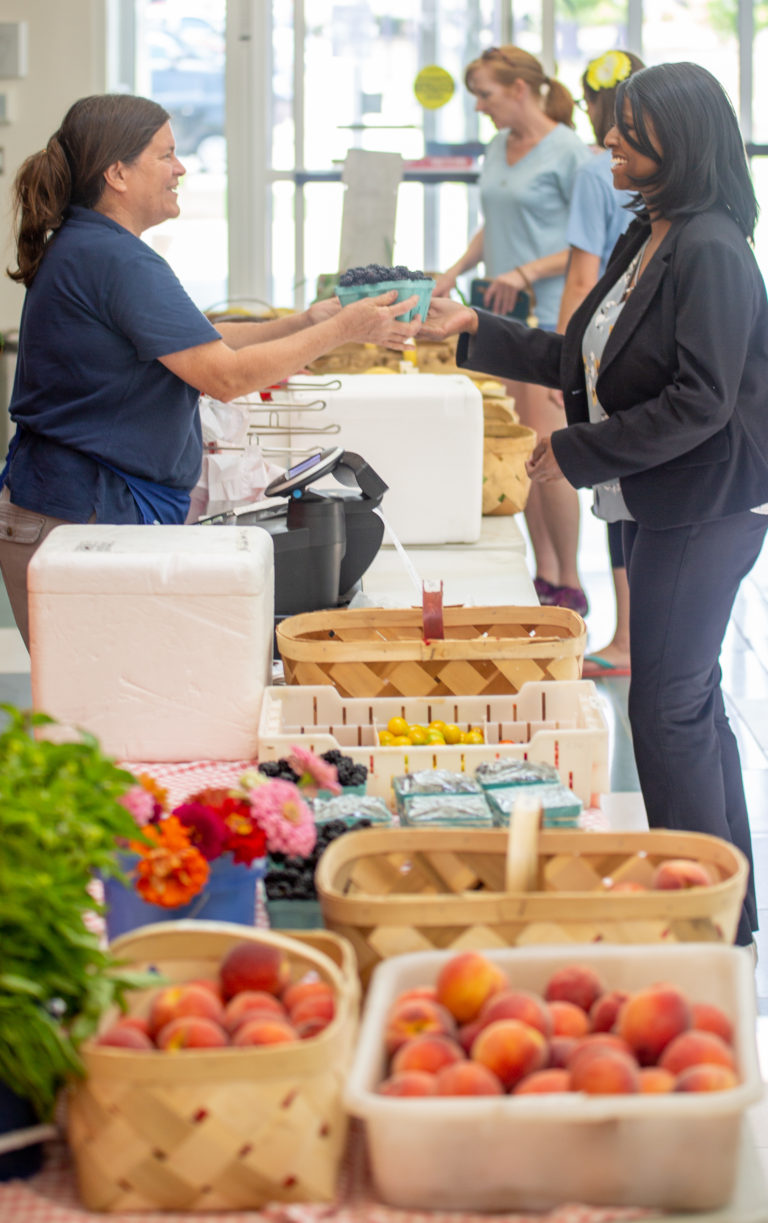
“We’ve grown up in this country with abundance and waste,” he says. “A study by the Natural Resources Defense Council in 2012 found that 40% of food produced in this country is never eaten, while at the same time, one in six Americans struggle to put a meal on the table.
“If you’re reducing how many plants, cows or pigs have to be grown or raised, you’re talking about doing things for the environment that help to be more sustainable. We want to get to the point where composting is the last resort. Instead of approaching cooking with the mindset that all the carrot peels have to go into the garbage, it is thinking— what can I do with these? How can I use this as food? I can make a soup with them, I can fry them and make crunchy garnish, I can make carrot coulis, I can put them in carrot cake.
“We’re just a small part of the feedback for this task force, but it’s a big thing for culinary schools nationwide because sustainability hasn’t been a major part of the focus in American culinary education, and it needs to be.
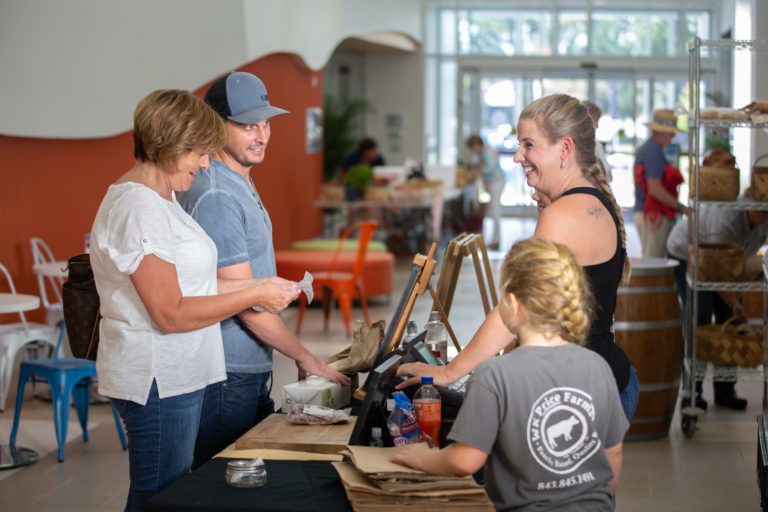
“Culinary education has always been about technique,” he continues. “But there is so much more to it. Cooking starts with where we buy our food. If I buy something that has lived an atrocious life, I might be able to take it and make it taste good and you think it’s great. But to me, it’s not great for life as a whole. It reflects a lack of understanding about where our food comes from and a lack of understanding about our planet— thinking that it has endless resources and can endlessly renew itself. Food, from birth to table, is a really long evolution. So with culinary education, it’s about adopting more sustainable principles, teaching our students, and then passing those on to restaurants, hotels, and grocery stores which in turn educate consumers.”
Knowing where your food comes from is important to Joe; he’s been on the board of the Waccamaw Farmers Market Cooperative since moving here four years ago. He’s also visited many of the area’s farms as well as the farmers markets.
“I see people at the farms working hard to do things the right way— growing with love and care for the environment and their customers, and using minimal harmful chemicals. And at the market, they’re competing with people who
bought from wholesale, commodity, factory-farmed products that they are able to sell at a relatively low cost. It makes it much more difficult for those growers to be a success if you don’t have a growers-only market.”
Some months ago, Joe saw a farmer at the market trying to sell his homegrown vine ripened tomatoes while his competition next booth over was reselling wholesale tomatoes, and for much cheaper.
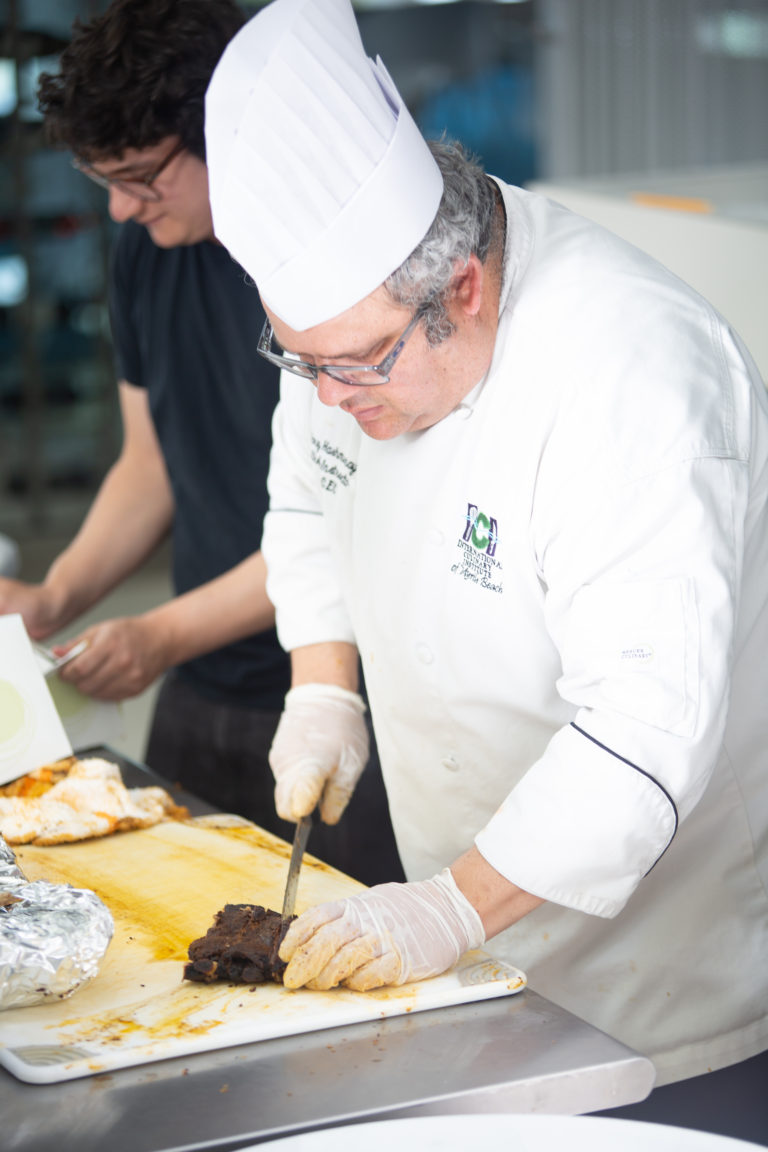
“Tomatoes that are factory-farmed and picked when they’re green are going to taste different then a tomato that is ripened on the vine; and it’s not as healthy for you,” Joe says. “They look alike, but the comparison stops there. I was disheartened when he said he wasn’t coming to the market anymore, so I invited him and a few farmers with strong sustainability practices to come to the culinary school to teach my students and expose them to locally grown food.”
The decision evolved into a small weekly farmers market at the culinary school which invites farmers to participate, but is open to public for shopping. Farmers are not charged a fee, and there is a strong educational component to it.
“It’s cool living in a place where you have farmers that keep varieties alive and they have 10-15 different types of tomatoes,” Joe says. “They ripen at different times, they taste different, and have different textures. I want my students constantly exposed to this stuff and to leave here and know where to get it; and to have already made contacts, so it’s not a foreign thing to them.”
Some of the farmers you may find at the market are: WK Price Farms, Indigo Farms, Hyman Farms, Worley Lane Farm, and Millgrove Farm.
Culinary school students sell fermented artisan breads which aren’t readily available in this area. It’s a club activity, and recent bread sales sent members on a field trip across the nation to visit a coveted pastry shop and learn new techniques.
Growers-Only Market at the International Culinary Institut
Every Thursday inside the main hall, 1-6pm. Vendors please no soliciting.
For adult continuing education and casual cooking classes visit our site
Feed yourself. Read:
In Defense of Food by Michael Pollen; The End of Food by Paul Roberts; The Third Plate by Dan Barber.
Watch: Super Size Me, Food Inc., King Corn, The Future of Food




